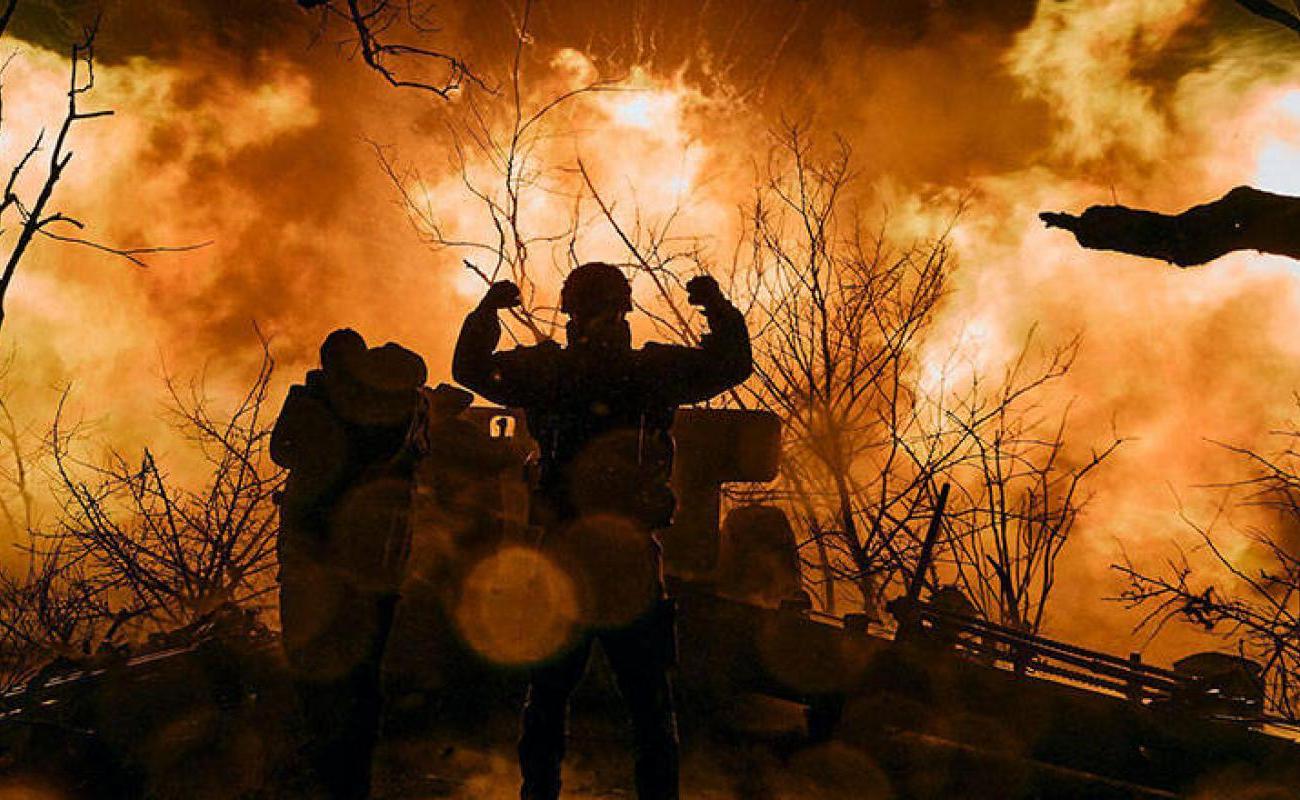Peace Through Agency: How to End Russia’s War in Ukraine

With the return of Donald Trump imminent and President Volodymyr Zelensky’s proposal of NATO security guarantees for Ukraine’s unoccupied territories on the table, attention has turned to how peace might be made to end Russia’s war in Ukraine.
Russia’s war in Ukraine is an assault on values and democracy as much as a battle for territory. Whatever President-elect Donald Trump might like to think, the war will not end through territorial concessions, since Vladimir Putin is unlikely to be satisfied only with pieces of Ukraine. And believing that the war is about Ukraine’s attachment to territory alone represents a narrow, somewhat statist view that is out of sync with the country’s contemporary character.
Ukraine has changed in a dramatic way since its independence from the embers of the Soviet Union in 1991, more than 70 years after it first declared its independence with the invasion of the Bolsheviks in late 1917. The next stage in a process of gradually asserting its interests was the Orange Revolution, which delivered a government independent of Russia’s interests in 2004. The revolution of dignity followed 10 years later, leading to the ousting of the pro-Moscow President Viktor Yanukovych and the reinstatement of the 2004 constitution. In 2019, President Petro Poroshenko, who had replaced Yanukovych, was defeated at the polls by Volodymyr Zelensky, and the rest is history.
But what is not history is Ukraine’s attachment to democracy. ‘Ukrainians have a voice’, says the country’s Nobel peace laureate Oleksandra Matviichuk, ‘and they won’t accept peace being made without them’. In this way, Ukraine is no different to South Africa, or any other country where peace has stuck – locals require agency, and the best that international actors can do is to uniformly pressure the parties to the table.
Yet a consistent feature of the last Trump and the current Biden administrations in the US is their disregard for the interests of their allies. The US proved, in cutting and running from Afghanistan, that it is just too big and careless to take on board the interests of others.
Believing that the war is about Ukraine’s attachment to territory alone represents a narrow, somewhat statist view that is out of sync with the country’s contemporary character
From the time of the talks with the Taliban in Qatar (under Trump, which excluded the government of Afghanistan) to the abandonment of Kabul to the Taliban (under Biden), there is a constant thread. Locals don’t have agency, or at least local allies don’t have agency in the face of geopolitical interests.
But cutting and running in this way was not cost-free.
If there is a lesson to be learnt from Afghanistan, it is in the consequences and interconnectedness of foreign policy actions. It is no coincidence that Putin invaded Ukraine (again) in February 2022 just six months after Washington left Kabul in a chaotic and duplicitous manner that could hardly have deterred a watching Moscow.
But let us return to the present, and the prospect of ending what has become a grim war of attrition inexorably grinding up Ukrainian civilians and territory as much as Russian soldiers and equipment.
There is a risk, in Matviichuk’s words, that ‘without security guarantees, Russia will use the peace simply to prepare for the next round of war’. Any peace treaty has to recognise past failures, such as the Budapest Memorandum signed in 1994, which supposedly prevented Russia, the US and the UK from threatening or using military force or economic coercion against Ukraine, Belarus and Kazakhstan, ‘except in self-defence or otherwise in accordance with the Charter of the United Nations’.
As a result, Belarus, Kazakhstan and Ukraine gave up their nuclear weapons. Subsequent events have demonstrated that security guarantees are both critical and problematic, since NATO membership – the most useful guarantee against further Russian aggression – is subject to the political whims of Hungary, Slovakia and other governments that will probably, on current form, veto Kyiv’s application.
Moreover, as Matviichuk reminds us, Ukraine will not simply ‘give up’ on its people in the occupied territories in the east and Crimea. ‘Under occupation means living in a “grey zone”’, she says, ‘without rights, no tools to defend themselves, and meaning a constant fear of torture, rape, murder, disappearance, forced migration to camps. Occupation makes human suffering invisible, but it does not mean that it is not happening’.
Nor is it possible for Ukraine simply to forget these Russian atrocities against civilians. ‘Only this week Russia launched an Intercontinental Ballistic Missile – or ICBM’, she notes, ‘against a peaceful civilian city. They have also attacked our energy system, leaving many uncertain how they will survive the winter. But we are still waiting to hear the response, the criticism, of the international community’.
For Ukraine, this war is yet another phase in its people’s long struggle for statehood against Russian imperialism, a commitment to values and agency that they are not likely to willingly trade
For the Nobel laureate, peace is not about trading territory, but ‘about people’, since it is ‘immoral not to speak about people’. For Ukraine, this war is yet another phase in its people’s long struggle for statehood against Russian imperialism, a commitment to values and agency that they are not likely to willingly trade, or at least certainly not for long.
As former President Viktor Yushchenko, who led the Orange Revolution in peeling away Russia’s grip on Ukraine 20 years ago, said in an interview with one of the authors, ‘An integral part of Ukrainian identity is to fight for our freedom and democracy, our own language and culture. This is why Ukrainians will never submit to Moscow’s brutal imperialism and tyranny.’
Those trying to cut a deal with Putin cannot expect Kyiv to go along with a version of Taliban redux. Kyiv is, after all, not Kabul, and Ukrainians are not Afghans.
